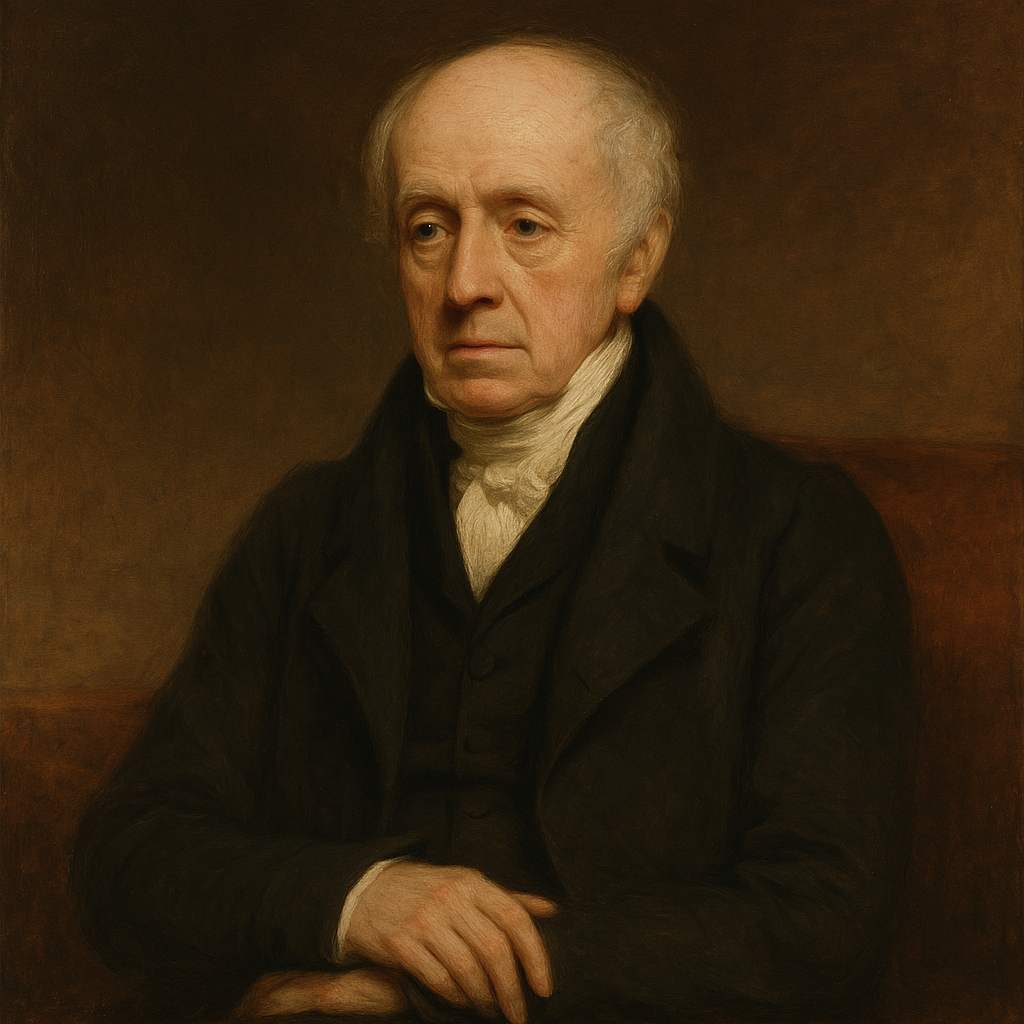1 Poems by Samuel Rogers
1763 - 1855
Samuel Rogers Biography
Samuel Rogers (1763-1855) stands as one of the most intriguing figures of English literary history, occupying a unique position as both a celebrated poet and a renowned patron of the arts during the Romantic period. Born into a wealthy banking family in Newington Green, London, Rogers enjoyed privileges that would later enable him to become one of literature's great hosts and benefactors, while simultaneously pursuing his own poetic ambitions.
The young Rogers developed his literary sensibilities under the influence of dissenting culture, attending Newington Green Unitarian Church and absorbing the radical intellectual atmosphere of late 18th-century London. His father's prosperity as a banker allowed Rogers to focus on his artistic pursuits from an early age, though he would later join the family bank, managing it with considerable skill while never allowing commerce to overshadow his literary ambitions.
Rogers published his first verse collection, "An Ode to Superstition," in 1786. While this early work received modest attention, it was his poem "The Pleasures of Memory" (1792) that established his reputation as a major poetic voice. This meditation on memory and its relationship to human happiness exemplified Rogers's signature style: elegant, carefully crafted verses that bridged the gap between 18th-century neoclassicism and emerging Romantic sensibilities. The poem's success was unprecedented, going through multiple editions and earning Rogers widespread acclaim.
Perhaps Rogers's most significant contribution to English letters came not through his poetry but through his famous breakfast parties at his house in St. James's Place, where he lived from 1803 until his death. These gatherings became a central institution of London literary life, attracting luminaries such as William Wordsworth, Samuel Taylor Coleridge, Lord Byron, and John Keats. Rogers's wit, conversation, and extraordinary memory for anecdotes made him an ideal host, while his extensive art collection, which included works by Michelangelo and Raphael, created an atmosphere of refined cultural appreciation.
Rogers's influence on the Romantic movement was subtle but profound. While his own poetry remained rooted in 18th-century traditions, his encouragement of younger poets helped shape the direction of English literature. He supported Wordsworth financially and critically, helped secure a pension for Henry Cary (the translator of Dante), and used his banking connections to assist numerous writers in financial distress. Byron, despite his caustic wit, maintained a lasting friendship with Rogers and praised his poetry's "peculiar elegance."
His later works, including "Italy" (1822-28), represented a significant departure from his earlier style. This travel poem, published in parts and lavishly illustrated, combined verse and prose in an innovative way that influenced later Victorian travel writing. The production of "Italy" nearly bankrupted Rogers, as he spared no expense in commissioning illustrations from J.M.W. Turner and Thomas Stothard, yet it eventually became his most commercially successful work.
Rogers's longevity allowed him to witness dramatic changes in literary taste and social conditions. Born when Samuel Johnson was still alive, he lived to see the rise of Victorian literature. His conservative poetic style, emphasizing clarity and restraint, fell increasingly out of fashion as the 19th century progressed, yet his influence persisted through his role as a patron and his preservation of literary history through his famous conversations and anecdotes.
The poet's personal life remained something of an enigma. Despite his vast social circle, Rogers never married, dedicating himself instead to art, literature, and conversation. His appearances in various memoirs and letters of the period reveal a complex character: witty but sometimes caustic, generous yet capable of sharp criticism, and deeply committed to preserving and promoting literary culture.
Rogers's final years were marked by a gradual decline in his health and influence, though he continued to receive visitors at St. James's Place until near the end. His death in 1855 marked the end of an era in English literary history. While his poetry is less read today than that of his more famous contemporaries, his role as a cultural mediator and patron, along with his influence on the development of English literature during a crucial period of transition, ensures his lasting significance in literary history.
Literary scholars continue to find value in studying Rogers's work, particularly for its illustration of the transition between neoclassical and Romantic sensibilities. His poetry, while perhaps lacking the revolutionary fervor of Blake or the emotional intensity of Wordsworth, demonstrates exceptional craftsmanship and provides valuable insights into the literary tastes and social networks of his time. Moreover, his extensive correspondence and the recorded conversations from his breakfast parties offer invaluable documentation of literary London during the Romantic period.
The legacy of Samuel Rogers extends beyond his poetry to encompass his role as a cultural institution in his own right. His life and work embody the complex interplay between art, commerce, and society that characterized the Romantic era, making him an essential figure for understanding the literary and cultural history of 19th-century England.
This text was generated by AI and is for reference only. Learn more
Username Information
No username is open
Everything is free to use, but donations are always appreciated.
Quick Links
© 2024-2025 R.I.Chalmers (V2Melody).

All music on this site by R.I.Chalmers (V2Melody) is licensed under a Creative Commons Attribution-NonCommercial 4.0 International License.
Attribution Requirement:
When using this music, you must give appropriate credit by including the following statement (or equivalent) wherever the music is used or credited:
"Music by R.I.Chalmers (V2Melody) – https://v2melody.com"
Support My Work:
If you enjoy this music and would like to support future creations, your thanks are always welcome but never required.
Thanks!


